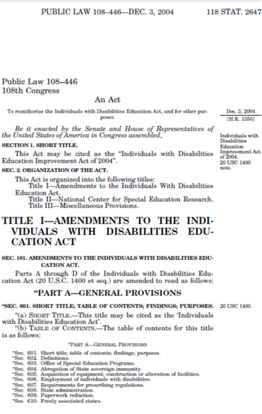1 Comment
Gluten free diets, casein free diets, elimination diets, supplements, or any combination thereof. Are they any good for people on the autism spectrum? Research still says, no doesn’t really look like it.
Over a decade ago when my children were first diagnosed with autism gluten free and casein free diets were the thing to do to treat autism. I did some digging to find the scientific basis for the belief in this special diet. What I found were studies with small sample sizes, no control groups or poorly matched control groups, no blinded or doubled trials (researchers and participants often knew what they were getting), subjective measurements of outcomes, and no clear mechanism for how the diet was supposed to work or what is was supposed to improve. I tried a gluten free diet anyway because, hey it was only food. After a year my children were still their autistic selves. I left behind the expensive food and dubious claims about special diets. Fast forward to today and there have been some high-quality studies done on not only gluten free and casein diets but also the various restriction/elimination diets that parents try as well as the supplements they are often encouraged to use as treatment for their children’s autism. The results are still underwhelming.  Large Magellanic Cloud Large Magellanic Cloud The microscopic patterns of life often repeat themselves in telescopic images of the universe. How we attempt to describe autism has a galactic representative as well. At first I thought to use the Magellanic Clouds but really any galaxy will do and colliding galaxies work even better. A collection of a variety of types of stars, maybe some globular clusters, gases, dust, maybe some planets around those some of those stars, and other celestial bodies zipping about The Large Magellanic Cloud is a globular cluster in our Milky Way galaxy. Pick any star on the edge of the cloud, is it in or out? Move a bit beyond to the next star, in or out? The edges of the clouds are as fuzzy as the edges of the autism spectrum. The cloud travels through the galaxy as a discreet body. The stars in the cloud interact with each other in predictable ways.  Antennae Colliding Galaxies Antennae Colliding Galaxies Galaxies colliding model the changing ground of societal expectations and scientific understanding of autism. New conflagrations occur, old ones are destroyed, new issues come to the front others fade into the background. While you have one new entity its various parts are different from each other, some by a little some by a lot, depending on how you choose to divide it up.  Antennae Galaxy close up Antennae Galaxy close up Our understanding of the universe is limited by our Earth-bound perspective. So too the understanding of autism is often limited by studying it only from the perspective of those who are not autistic. While we aren't leaving our solar system anytime soon to observe the universe there are a growing number of autistic people who are ready and willing to help us gain a better understanding of autism. *From December 2007. This brilliant advertising campaign was supposed to raise the profile of autism or something. Still not sure why so many learned people thought this was an okay way to present autism and the people who live with autism to the world. This is quite repulsive. In a society that seems to put self esteem above all else for children it seems that it is quite alright to degrade individuals with developmental delays and psychiatric disorders and perpetuate stereotypes about them under the guise of raising awareness. The kids really did spend Christmas playing with the boxes the toys came in. *Originally posted on my personal blog.
In 2014 Congress passed the ABLE Act enabling families of disabled children to save for long term care expenses for their children without penalty. ABLE qualifying accounts are tax exempt and do not count against individuals when applying to government programs. As expected the ABLE Act 2014 comes with some strings attached. There are saving and spending limits for qualifying accounts as well as penalties for funds used for unapproved expenses. Now a bipartisan update to the original 2014 version of the ABLE Act, called ABLE 2.0 is in the works. The idea of ABLE 2.0 is to transform the current ABLE Act 2014 into what would essentially be government run estate planning. The ABLE 2.0 package includes three bills. The ABLE to Work Act allows individuals and families to save more money — up to the federal poverty level — in their accounts if the beneficiary works and earns income. The ABLE Financial Planning Act allows families to roll over savings in a 529 college savings plan into an ABLE account and prevents these funds from being trapped or fined if a child is born with a disability or acquires one later in life. The ABLE Age Adjustment Act raises the age limit for ABLE accounts from 26 to 46, helping people whose disability or disease develops later in life. Some are excited about this development, “Let’s enable parents of special-needs kids to set money aside for lifetime care” believing that it will open up estate planning to the less “well-to-do.” In the past, this kind of long-term disability planning generally required complicated and expensive trusts, and was thus the sole province of the well-to-do. On its face, ABLE 2.0 looks to be a good development for Americans with disabilities allowing families to save more, be more flexible with how they save, and recognizing that disability can happen at any time during the life span. Having utilized government programs designed to help the poor and the less “well-to-do” I’m cautious about extending more government control over the finances of individual Americans than it already has. Government programs like this tend to become bloated, difficult to access, and are more of a burden than a help.
Americans can already do what ABLE 2.0 proposes to help Americans do. Having gone through the “complicated and expensive” process of setting up a trust it isn’t that complicated. It did cost and it was worth every penny we saved to pay for the process. I recommend every family with disabled loved ones research their estate planning options before tying themselves to government options. Go to a free legal clinic for advice on how to get it done. Check the local library for resources on estate planning. There’s always google as well. Estate planning doesn’t have to be the “sole province of the well-to-do” in the information age. Some days it feels like being a parent requires me to be a general education specialist, a special education expert, a psychologist, a neurologist and neuroscientist, a geneticist, an education law specialist, a diplomat, and a hunting dog all at the same time. It is exhausting. But it’s what you do. Will there be a time when I’m not going to advocate for my children and others like them? When I’m dead maybe. My kids want to go to college. That means it’s my job to make sure everyone does their job to give my children that opportunity. Sometimes that means holding my children to a higher standard than others have for them. Sometimes that means cutting them some slack. It’s a delicate balance that requires knowing the child in question and what best motivates them. Mostly it requires being present and aware of my child and their needs. It means setting in my mind that they can achieve their goals and working alongside them to make sure it happens. I fall into bed exhausted every night. My children do as well. We all work hard fighting for our futures. It is so worth the battle. While I’m doing all that I also get to do the regular parent stuff. The nurturing, the loving, the laundry, the cooking, the cleaning, the teaching of life skills and how to be a decent human being. I need a nap. People, parents, advocates, therapists, medical and school professionals, throw around words like prevention, cure, and treatment when talking about autism as if they are interchangeable. These terms are rarely explicitly defined. It's just assumed that everyone in the room knows what you're talking about. This vagueness and imprecision with language muddies the waters when trying to have meaningful discussions about helping autistic people.
Let's start with the word prevention. Prevention is proactive, stopping something, something you think is bad, from happening. There are a lot of people invested in finding ways to make sure more autistic people don't happen. Their primary tool is the flood of information about the genetics of autism that has become known over the last decade or so. I'm excited about the great body of knowledge about autism that science is amassing. But as someone raising autistic children and advocating for society to value the humanity of autistic people I can't say that I'm excited about using these scientific discoveries to find ways to prevent others like my children from coming into existence. While some search for ways to use genetic markers to eradicate autism I'm not reassured by insistences that prevention is only for the most "severe" cases. Severity here being defined as those people who would never be able to dress themselves, feed themselves, or speak. This raises several questions. Who defines the severity of autism? Right now, the criteria are arbitrary at best. When is the determination of severity made, before conception, pre-implantation, first trimester? Good luck with that moral and ethical quagmire. Arguing that people with more intense needs shouldn't exist doesn't make the argument for autism prevention any more palatable. Throw into the prevention mix those who still cling to disproven causation theories about autism. Their beliefs about what causes autism lead them to choose from a range of preventative measures that require significant financial output, emotional investment, and leave them vulnerable to adverse health outcomes. We've already seen the results of some those choices with recurring outbreaks of previously rare vaccine preventable diseases. I don't want to repeat myself just now so I'll leave that topic alone for the moment. Suspending a student because of behavior related to their disability is illegal. Despite this fact suspension is still the go-to response for many schools and school districts. School districts have been penalized for disproportionately suspending students with disabilities and thus violating their rights. If your school/school district is known for routinely suspending students with disabilities over behavior it is up to parents and guardians to hold them accountable for these illegal actions. If students with disabilities are routinely suspended over behavior it means that schools have failed, and failed spectacularly, at meeting their legal and moral obligations to students.
So how do we help our students experiencing behavior challenges at school? Any student with behavior challenges at school is due a Functional Behavioral Assessment (FBA). FBAs are a part of federal and state education regulations (see resource list below). The purpose of a FBA is to identify behaviors that pose a challenge to a student’s learning, identify what in the student’s learning environment precedes or triggers the behaviors, and what follows from the behaviors. FBA can also identify behaviors that help support a student in their learning environment.
April rolls around every year and every year for autistic folks, their families, and friends we become the center of a media frenzy. Some welcome this some not so much. Lost in the hubbub though is the fact that life is precious and beautiful especially when me make conscious decisions to make it so for our autistic selves, family, and friends.
 Mark your calendar for this Friday, December 16, 2016, 9:00am PT (12:00pm ET). I'll be a guest speaker for the free monthly Nurtured Heart Approach podcast. This month's topic is The New Year: Replacing Resolutions with Intentions. The podcast is a great resource for learning about NHA. |
Categories
All
Archives
December 2021
|
||||||||
|
|

 RSS Feed
RSS Feed
